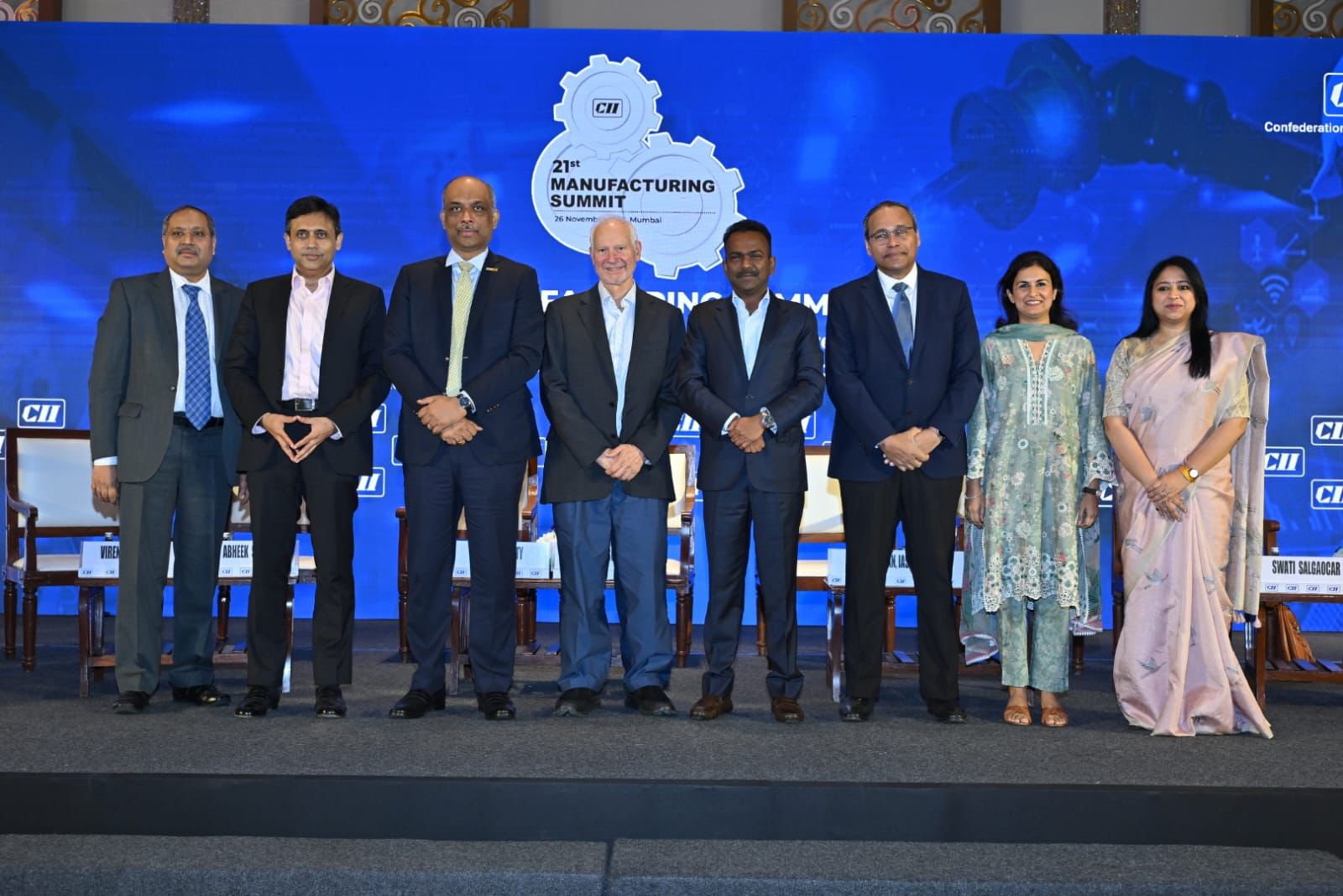
India sets a new manufacturing vision: CII Summit 2025 calls for innovation-led growth as Maharashtra announces $1 trillion roadmap
MUMBAI : The Confederation of Indian Industry (CII) organised the 21st edition of the CII Manufacturing Summit 2025 on 26 November 2025 at the Jio World Convention Centre, Mumbai. With the theme “Shaping India’s Manufacturing Future: Competitiveness, Sustainability & Global Leadership,” the Summit convened senior government leaders, industry pioneers, technologists, and global strategists to chart a forward-looking agenda for India’s manufacturing transformation. As a flagship platform of CII, the Summit provided a timely forum for deep reflection on policy direction, technological shifts, and India’s global manufacturing ambitions.
Opening the Summit with an encouraging message, Dr P Anbalagan (IAS), Secretary (Industries), Government of Maharashtra, set the tone for the State’s economic aspirations. “Maharashtra is not just contributing to India’s growth story — it is shaping it. With a USD 530 billion economy, the nation’s highest FDI share, and a young, skilled workforce, we stand firmly at the forefront of industrial and technological transformation. Our vision for a $1 trillion economy by 2030 is anchored in inclusive, region-balanced development and powered by emerging sectors from EVs to semiconductors. With the New Industrial Policy 2025, we aim to unlock $850 billion in manufacturing and services investments, strengthening our leadership in innovation, exports, and sustainable industry.”
Building on this economic blueprint, industry leaders underscored the urgent need for India to seize this moment of global rebalancing in manufacturing. Mr Jamshyd N Godrej, Past President, CII & Chairman, CII Manufacturing Summit 2025, emphasised India’s readiness for a decisive leap: “Manufacturing has always been the engine that powers nations, and India now stands on the brink of a defining leap. With a strong policy push, rising investments, and a youthful workforce ready to embrace advanced technologies, we have the opportunity to shape a manufacturing future that is competitive, sustainable, and globally respected.”
Continuing this momentum, Mr R Mukundan, President-Designate, CII and MD & CEO, Tata Chemicals Ltd., highlighted the importance of capability-building: “Manufacturing leadership in the twenty-first century will be shaped not by scale alone, but by the ability to innovate, digitalise, and empower people… We have a historic opportunity to position India as a trusted, competitive, and future-ready global manufacturing hub.”
Ms Swati Salgaocar, Past Chairperson, CII Western Region, noted India’s growing confidence and global outlook: “Indian manufacturing is becoming more ambitious, more modern, and more outward-looking. The journey ahead requires sustained commitment—from industry to invest in capacity and R&D, from government to keep reforms moving, and from institutions like CII to strengthen training, capabilities, and global partnerships. Today’s Summit is a key step in shaping this future.”
Adding a strong policy perspective, experts in manufacturing excellence highlighted the alignment of national initiatives that now support India’s industrial rise. Mr Deepak Shetty, Chairman, CII Manufacturing Excellence Council and CEO & MD, JCB India, remarked: “From the Production-Linked Incentive schemes to Gati Shakti, GST 2.0, and the National Manufacturing Mission, India now has an aligned set of policy catalysts that can unlock a $7.5 trillion manufacturing economy by 2047. The foundation has been laid—our task now is to convert momentum into measurable outcomes.”
Concluding the leadership reflections, global strategy experts reinforced that competitiveness will depend on India’s ability to master technological and sustainability transitions simultaneously. Mr Abheek Singhi, Chair of Practices, Managing Director & Senior Partner, Boston Consulting Group, stated: “Technology is accelerating, infrastructure is upgrading, and sustainability is non-negotiable. These constants define the future of manufacturing — and India must lead by mastering them.”

